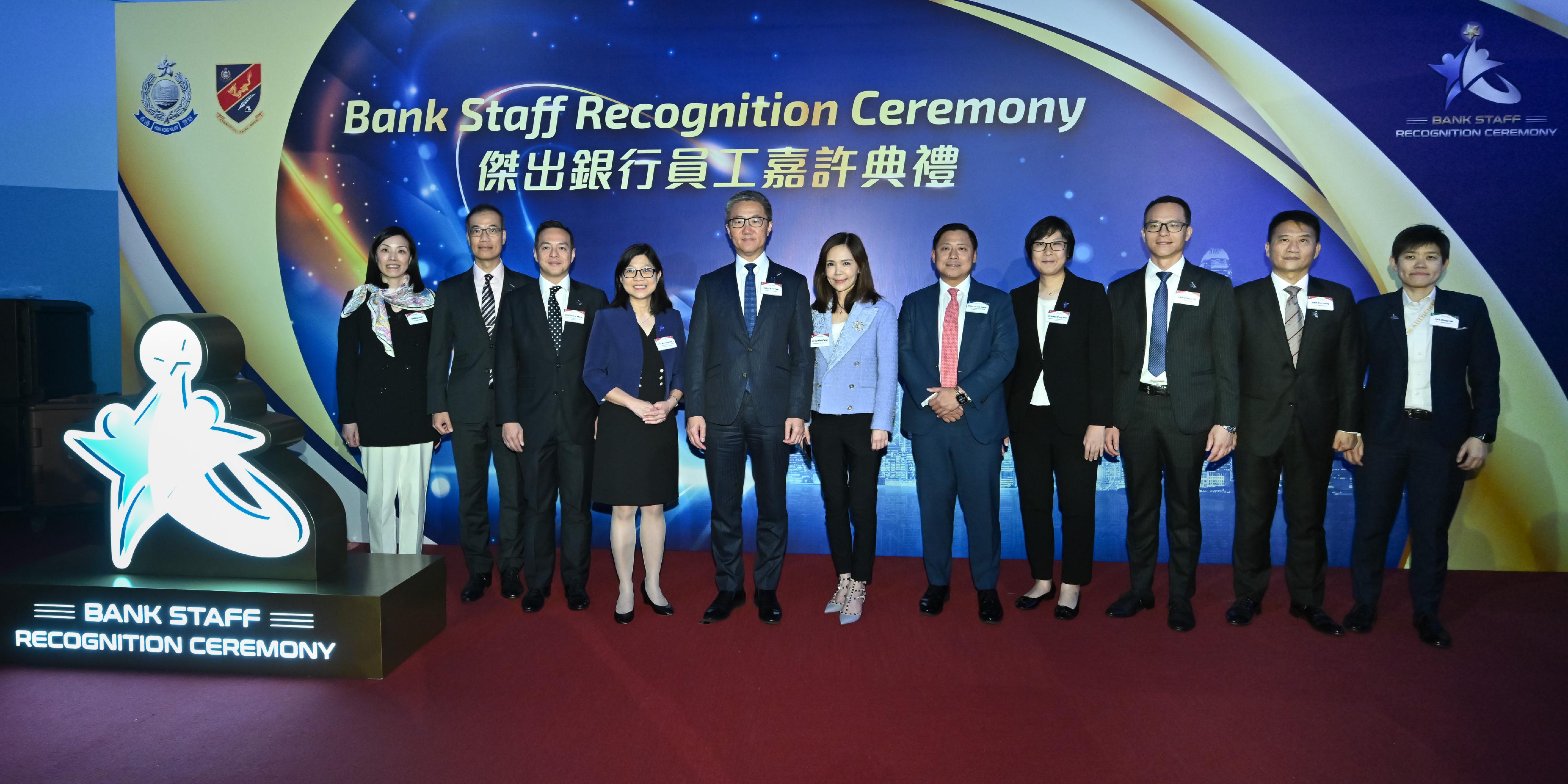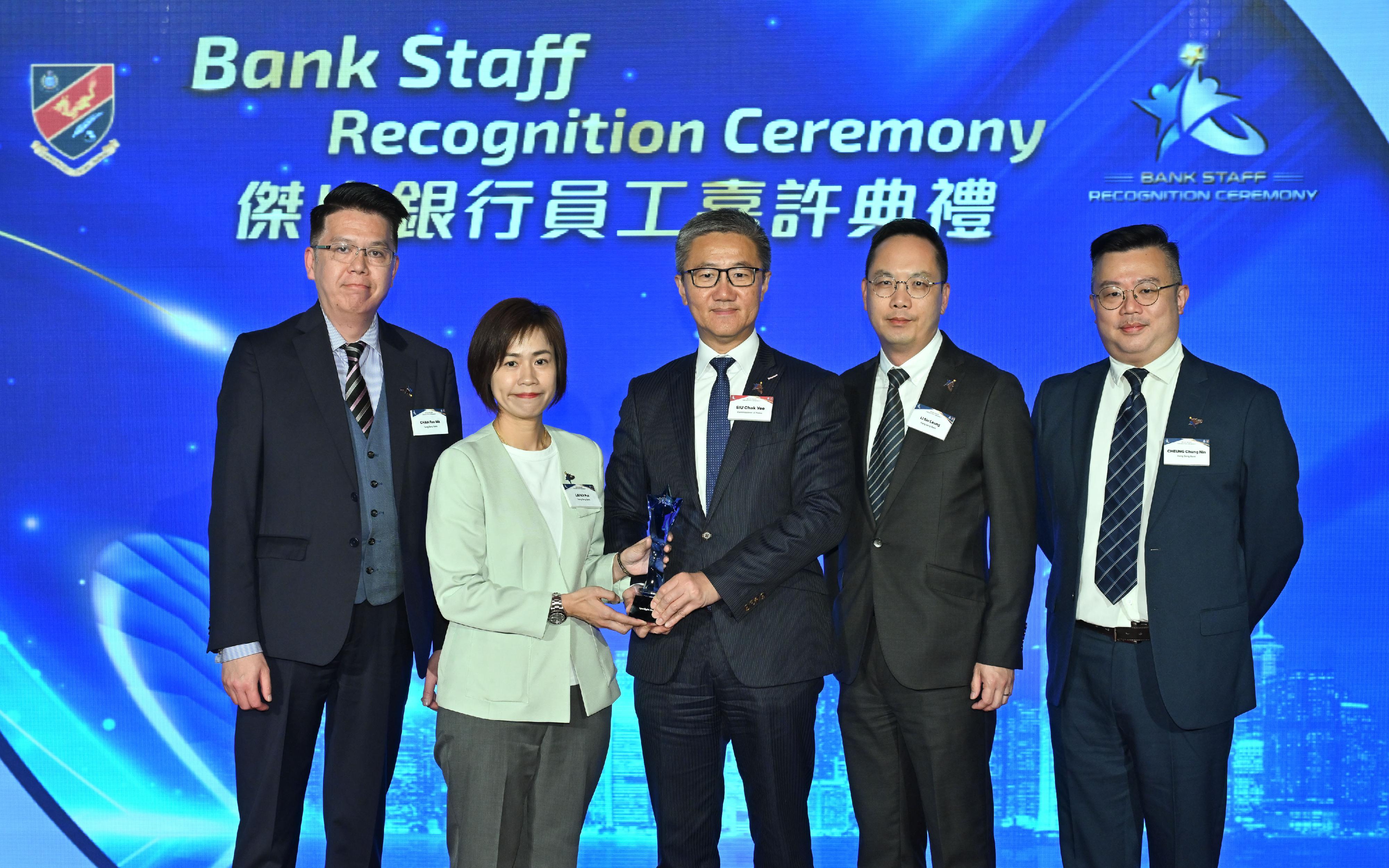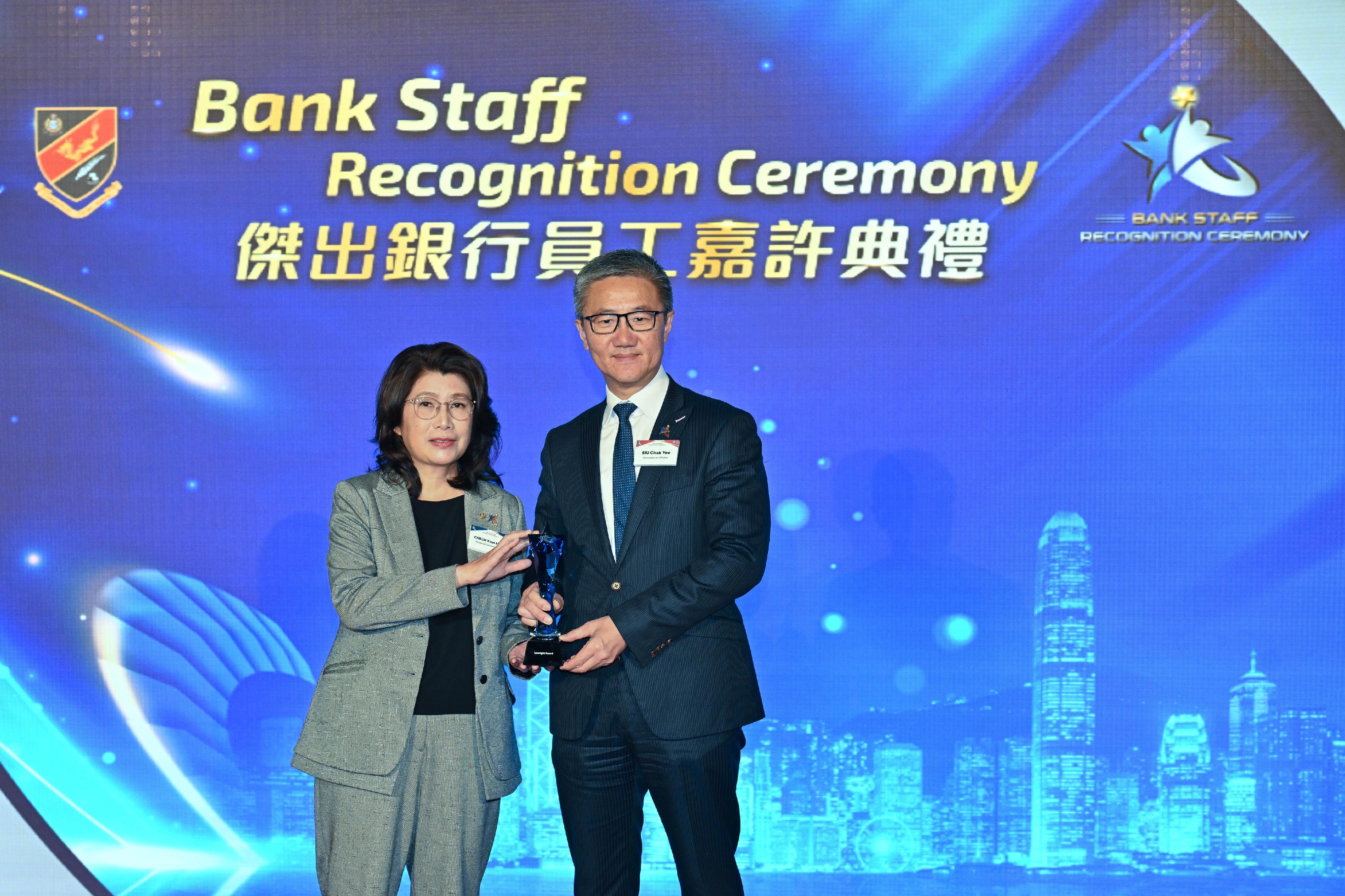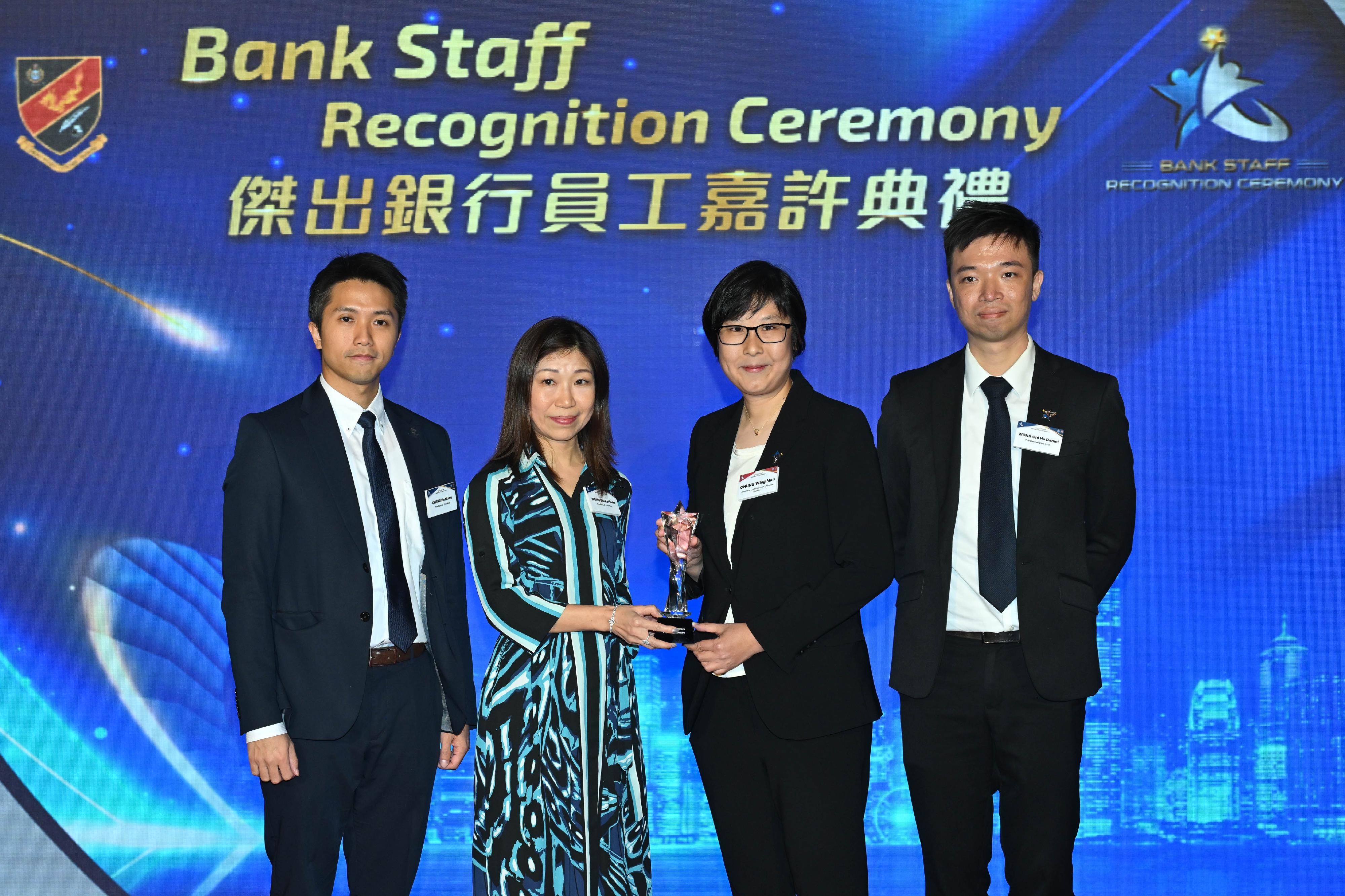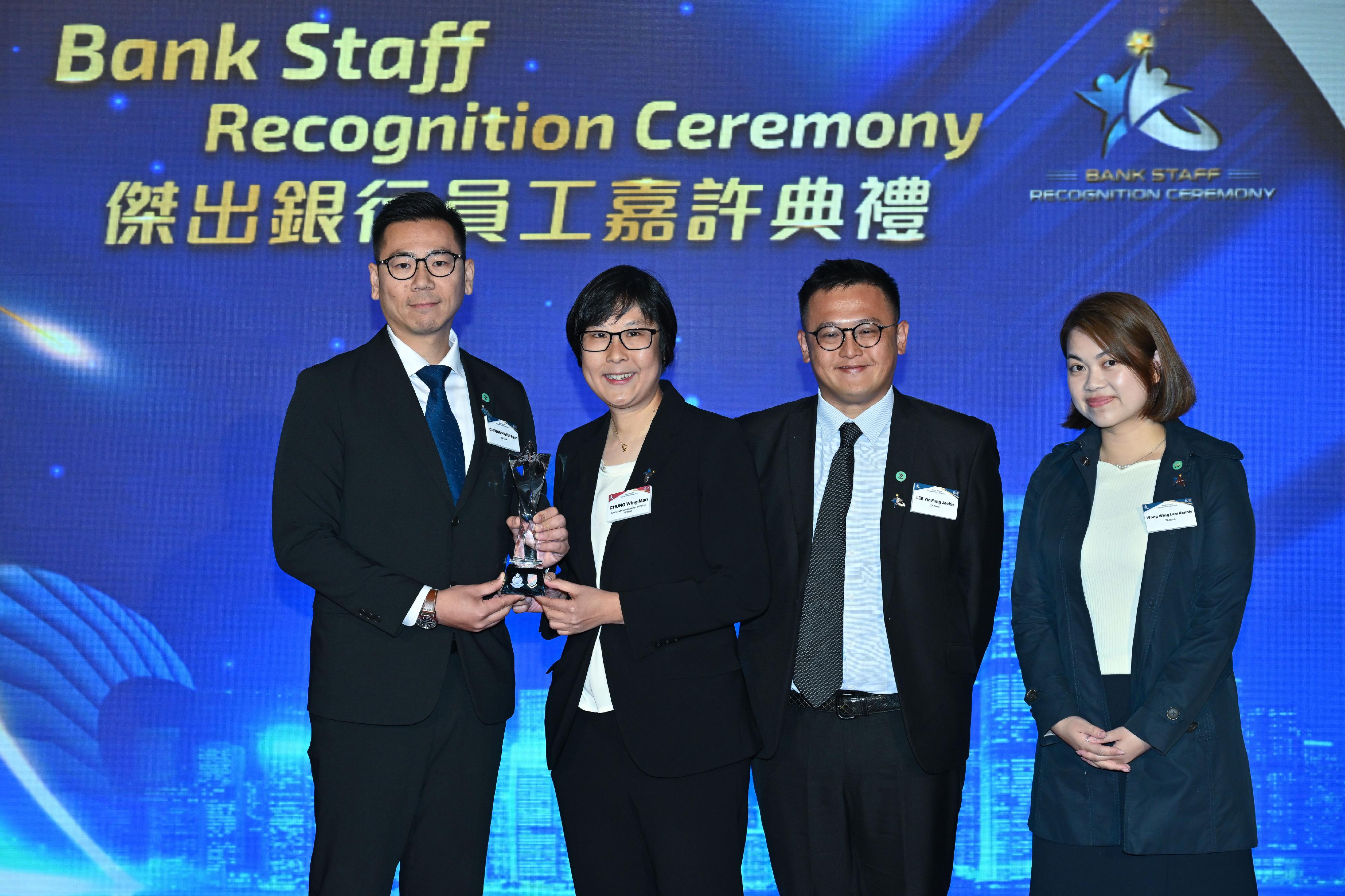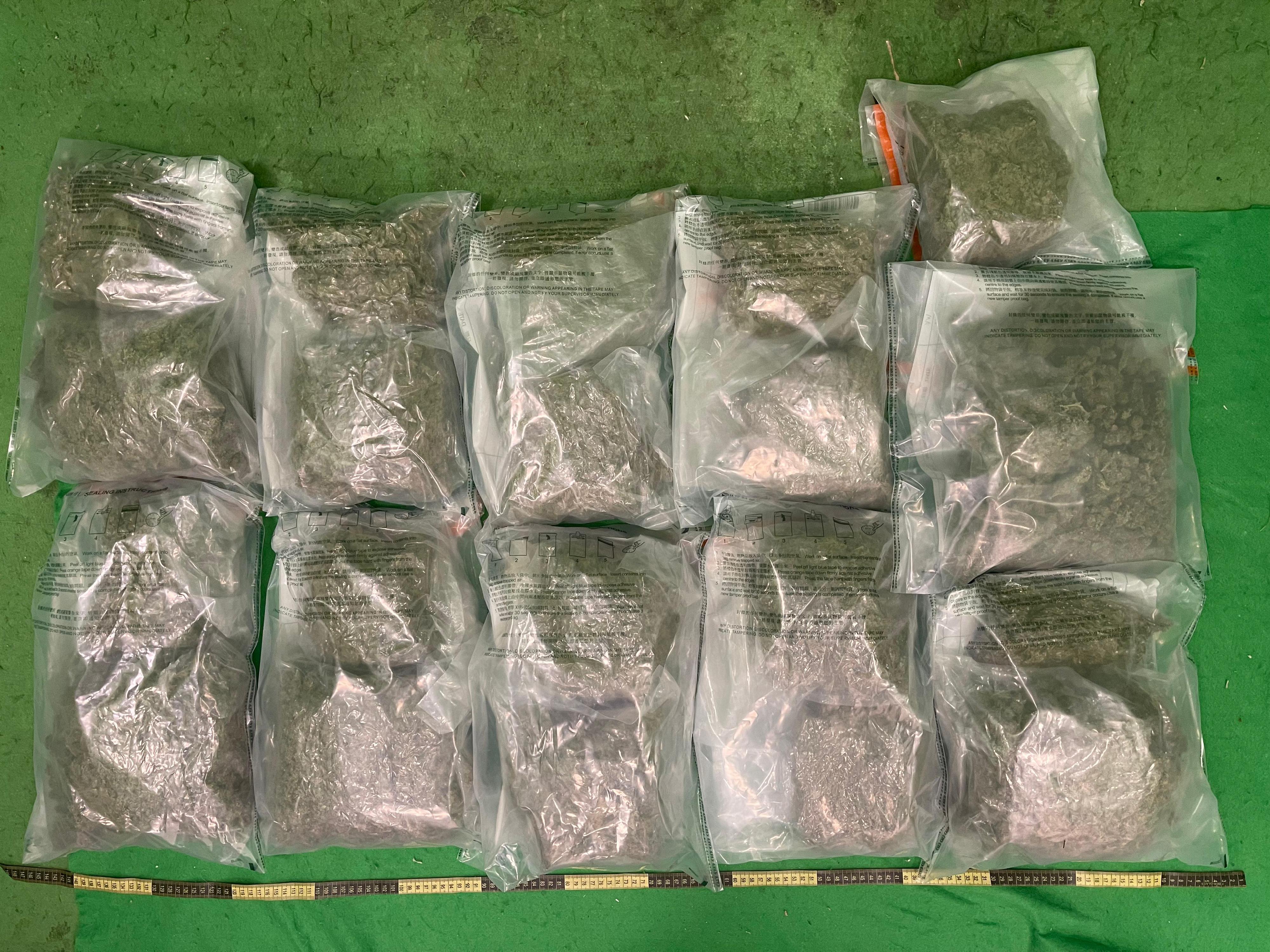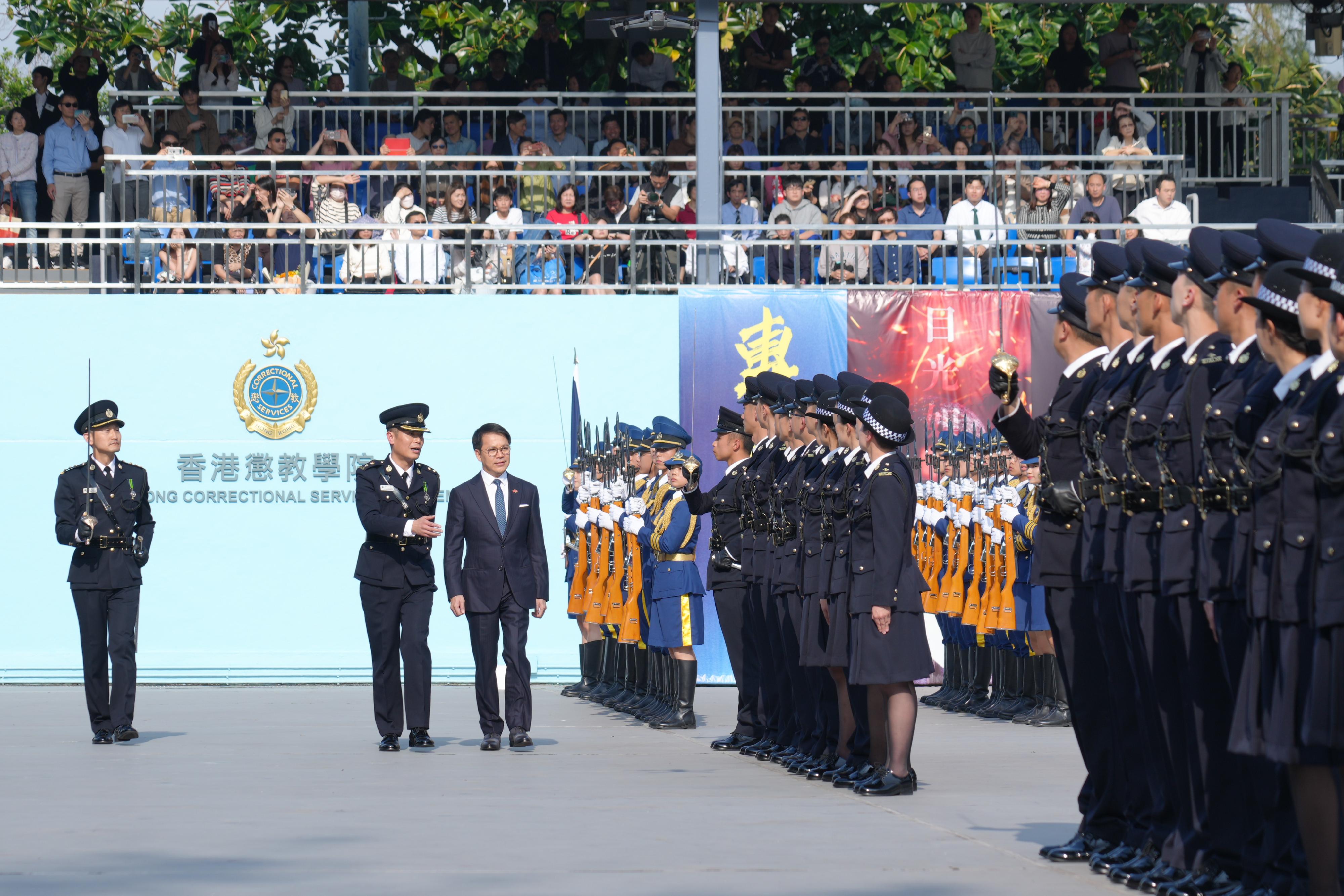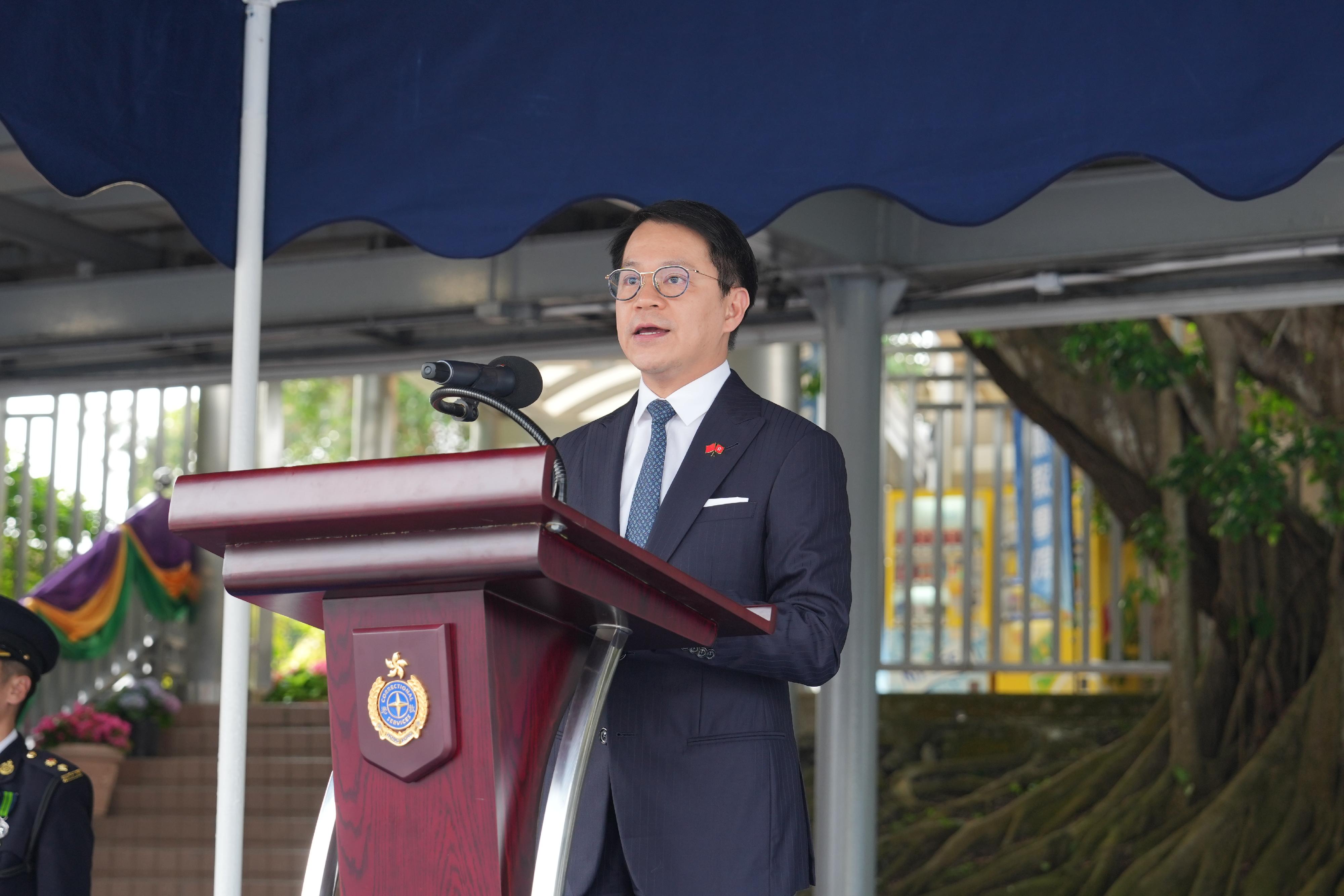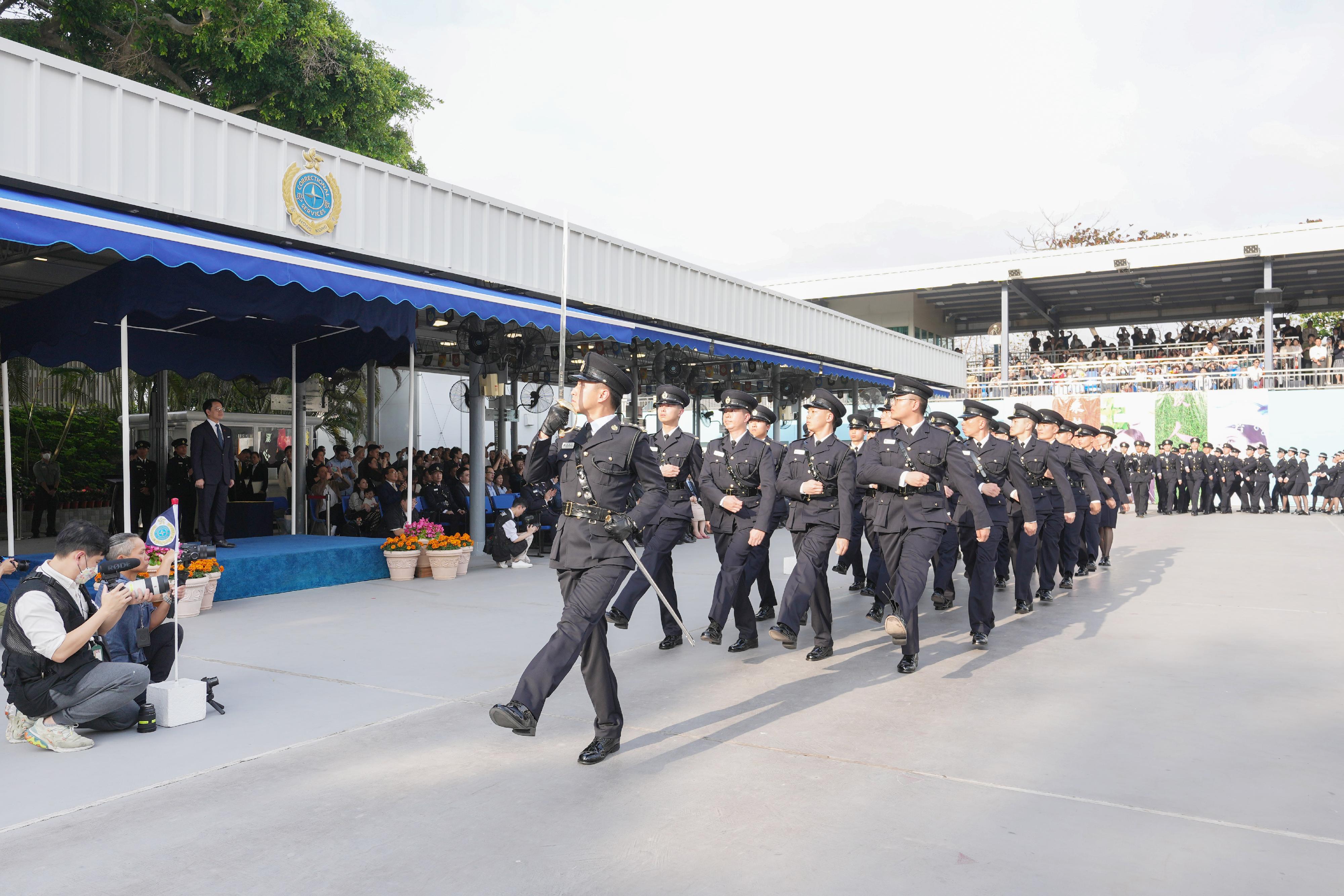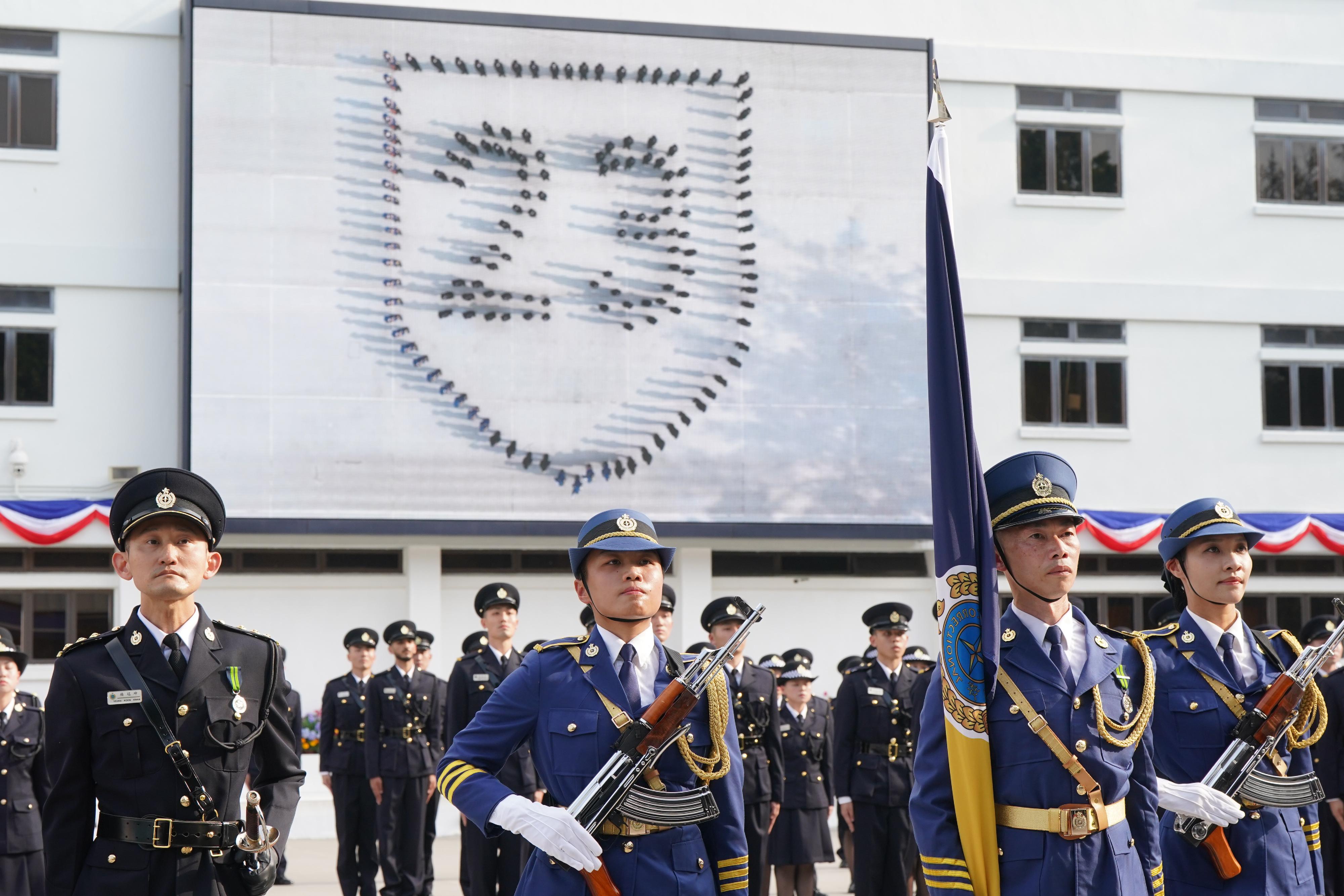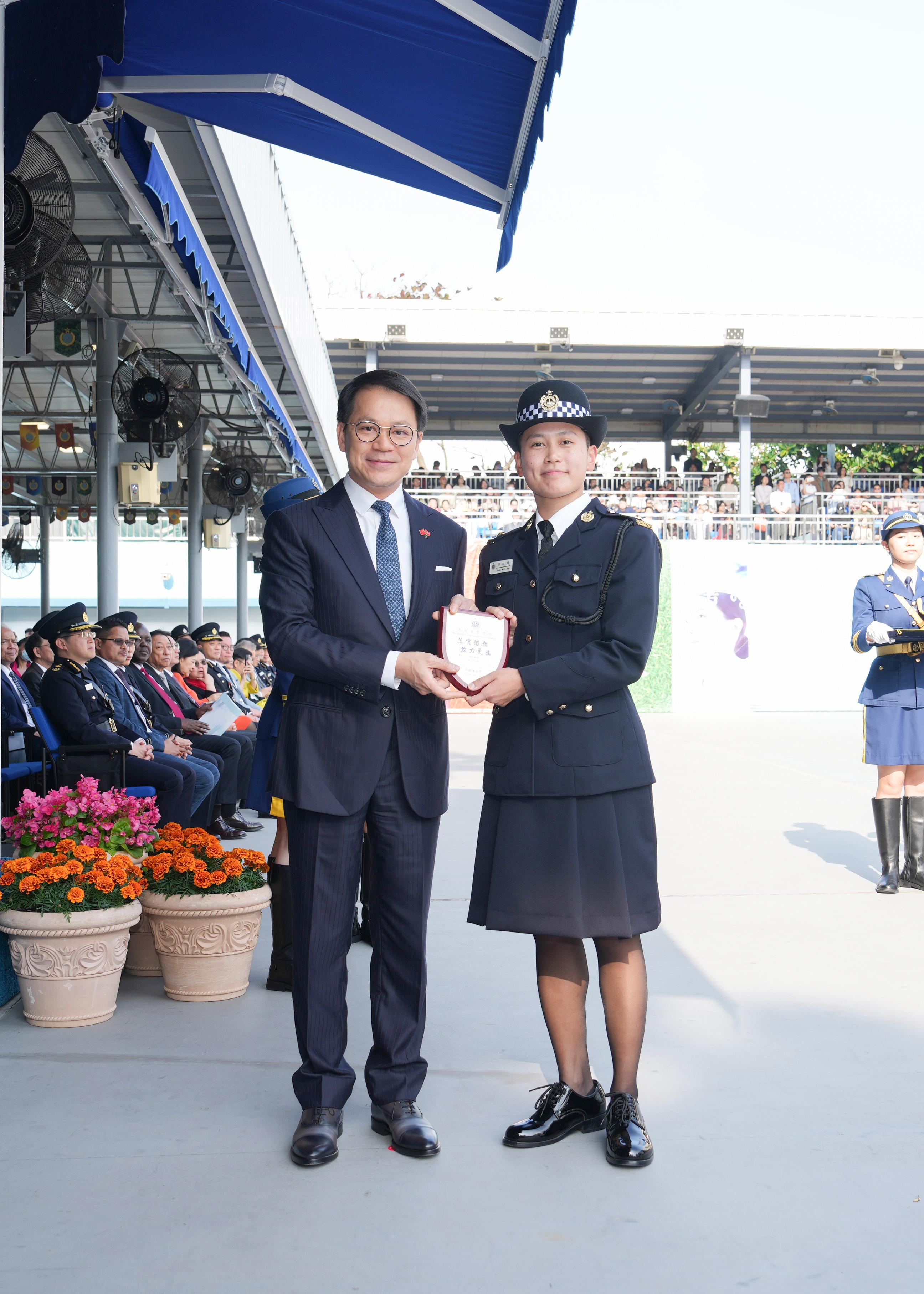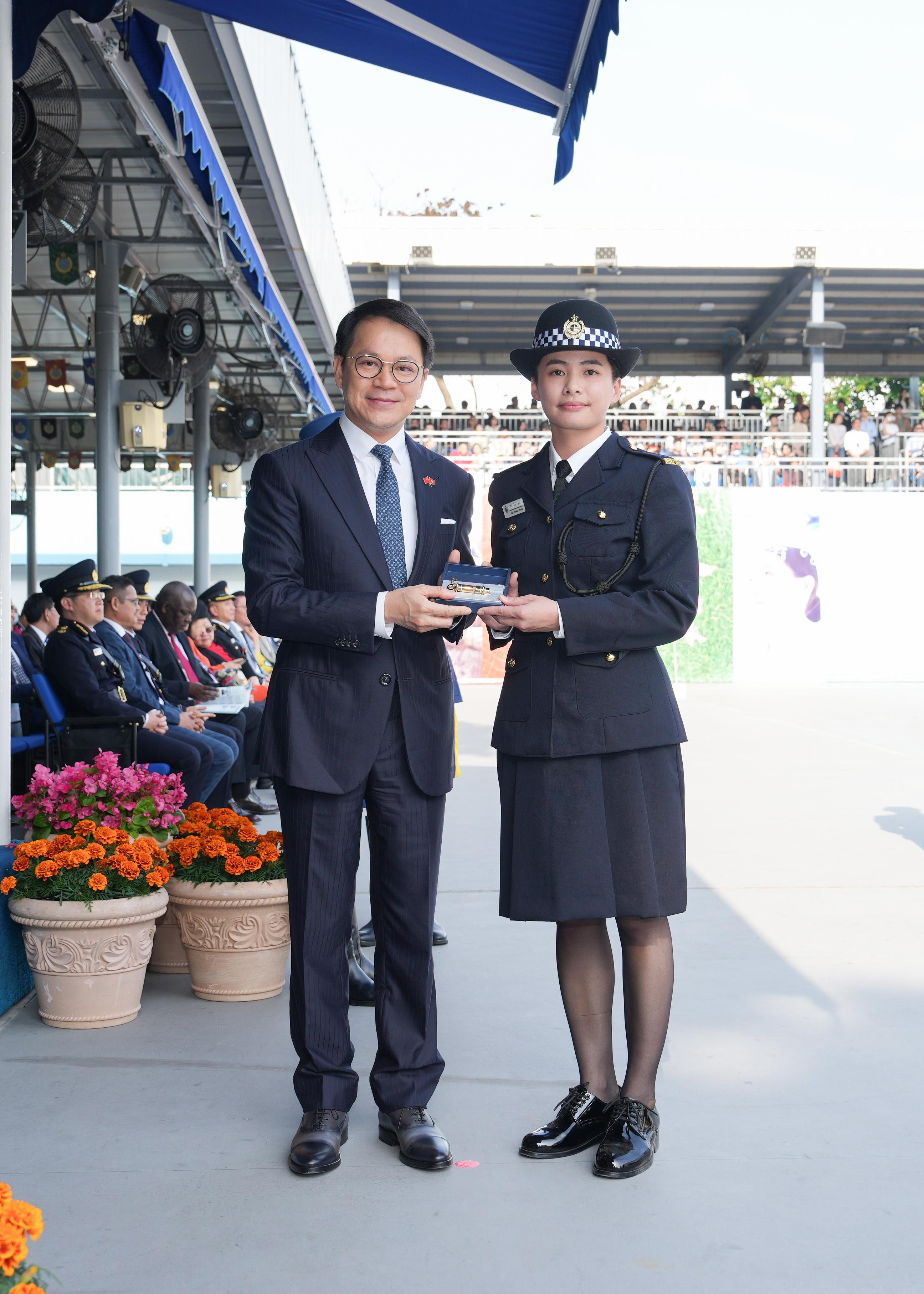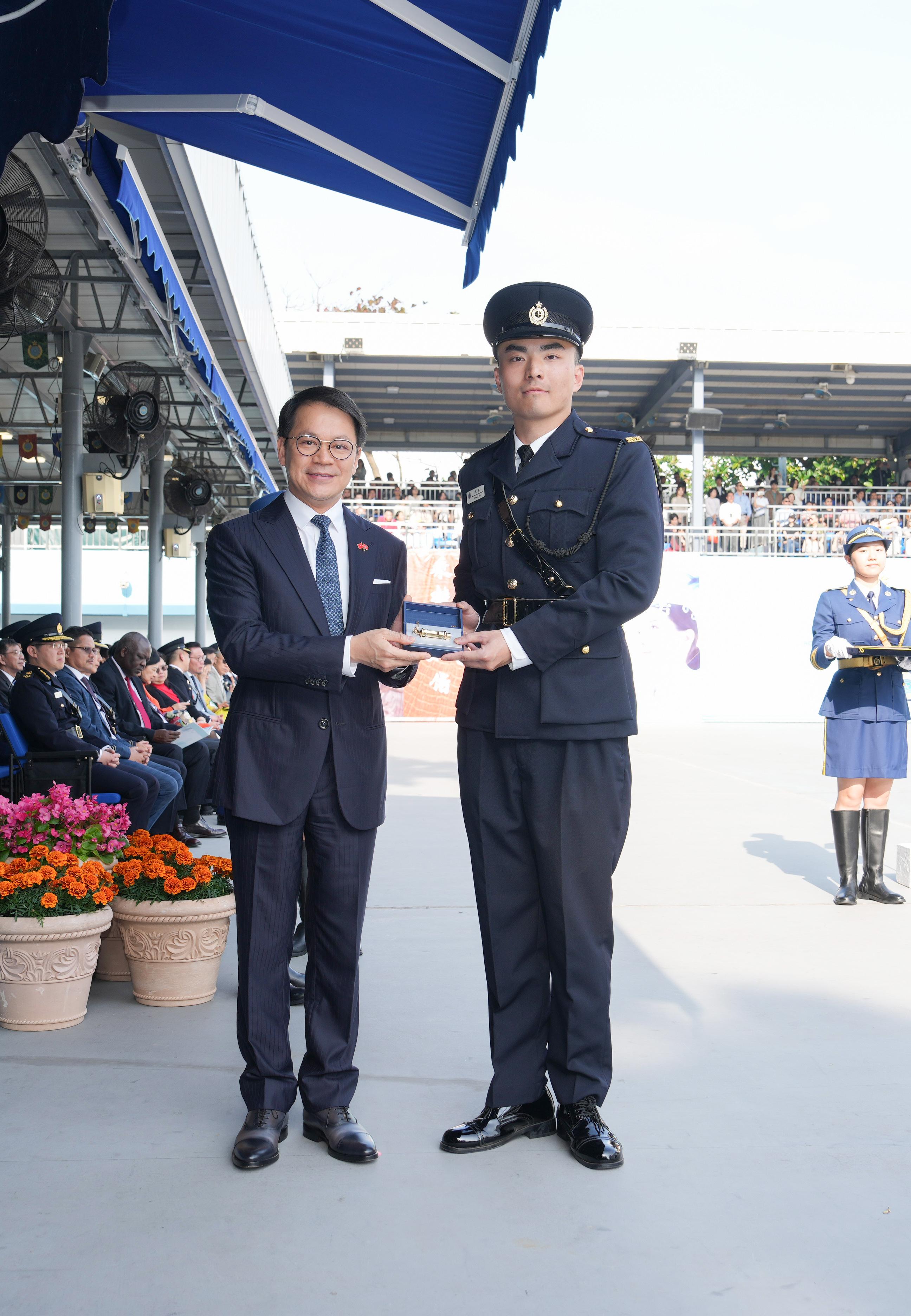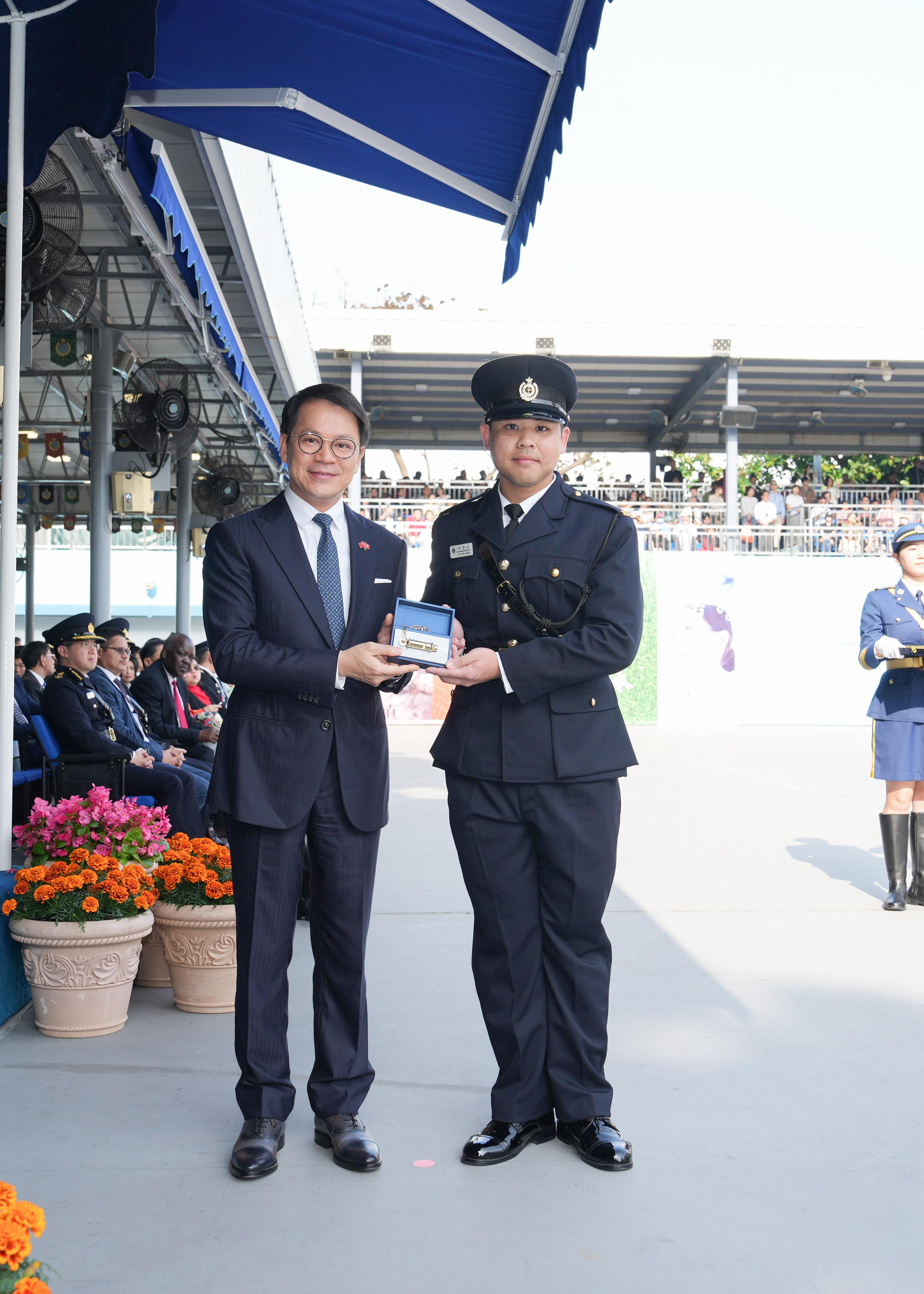HKPF holds recognition ceremony to commend banks and their staff for making joint efforts to combat scams (with photos)
The Hong Kong Police Force held the Bank Staff Recognition Ceremony today (March 22) to commend and thank banks and their staff for their close collaboration with Police and excellent performance in preventing and combatting deception cases.
Addressing the ceremony, the Commissioner of Police, Mr Siu Chak-yee, said that countries and regions are all facing the challenge of increasing numbers of deception cases and financial losses. A total of 39 824 deception cases were recorded in Hong Kong in 2023, registering an increase of 42.6 per cent compared with that of 2022, with loss as high as $9.18 billion. Nearly one out of every two crime cases involved deception. Apart from pecuniary losses, scam victims often face immense pressure and suffer psychological trauma due to self-blame or broken relationships with their families. In some extreme cases, victims may even commit suicide and lose their precious lives. The impact of deception on public order should not be overlooked. Therefore, Police have been furthering their collaboration with the banking sector in combatting deception cases in recent years.
The Anti-Deception Coordination Centre (ADCC) was established in July 2017. Up to December 2023, the ADCC prevented 915 deception cases identified by bank staff, arrested 708 fraudsters and intercepted crime proceeds of over $12.5 billion, through close collaboration with the banking sector.
Police and the Hong Kong Monetary Authority (HKMA) continued to enhance their co-operation with the banking sector in 2023 and launched a number of joint measures, including:
1) extending the 24/7 Stop-Payment Mechanism to cover all retail banks and improve the effectiveness of the mechanism;
2) launching the Upstream Scam Intervention Scheme to proactively identify potential scam victims, contact them and provide them with anti-scam advice by phone, SMS messages or via deployed police officers, based on co-ordination between Police and banks. Since the launch of the scheme in May 2023 to February 2024, 900 people were dissuaded from continuing to transfer funds to fraudsters;
3) establishing the Anti-Deception Alliance which gathers staff deployed by 10 participating banks to work at the ADCC, facilitating communication and co-operation with Police in a more direct and immediate manner on stop-payment processing, identification of potential scam victims and intelligence exchange;
4) introducing Financial INtelligence Evaluation Sharing Tool (FINEST), a financial intelligence sharing platform for banks to enhance their ability to exchange information to more effectively detect and stop fraudulent activities and stooge account networks; and
5) introducing Faster Payment System (FPS) High Risk Alert. By integrating the data of Scameter into the FPS platform, members of the public are notified of high risk transactions and thus can identify scams more easily. Sinceits launch in November 2023 to February2024, nearly 400,000 alerts were issued to the public.
There are 287 bank staff members commended in the ceremony this year, assisting Police in identifying and discouraging 364 deception cases in the past year and a half. The number of frontline staff commended this year has significantly surpassed the 192 individuals last year, reaching a 50 per cent increase. Moreover, six outstanding corporate awards are established, including Anti-Scam Excellence Award (Gold, Silver, Bronze), Anti-Scam Advancement Award, Effective Collaboration with Police Scam Response Team Award, Effective Publicity and Education Award, Exemplary Efforts in Upstream Scam Intervention Award and Effective Regtech Application Award, in recognition of the banks which assist Police in the prevention and proactive detection of deception cases (the awardees are listed in the Annex).
Mr Siu thanked the HKMA, the Hong Kong Association of Banks (HKAB) and the banking industry for their continued support and contributions, and looked forward to partnering with the banking industry to deepen "police-bank cooperation", jointly developing more strategic, proactive and innovative measures to comprehensively improve the effectiveness in combatting deception cases, protecting the properties of the public and maintaining Hong Kong’s reputation as an international financial centre.
In addition to Mr Siu, the officiating guests also included the Deputy Commissioner of Police (Operations), Mr Chow Yat-ming; the Director of Crime and Security, Mr Yip Wan-lung; the Assistant Commissioner of Police (Crime) Ms Chung Wing-man; the Executive Director of the HKMA, Ms Carmen Chu, and the Chairperson of Anti Money Laundering Committee of the HKAB, Ms Carol Li.
